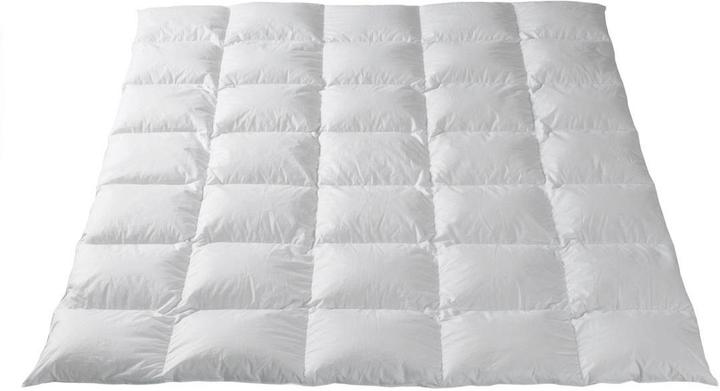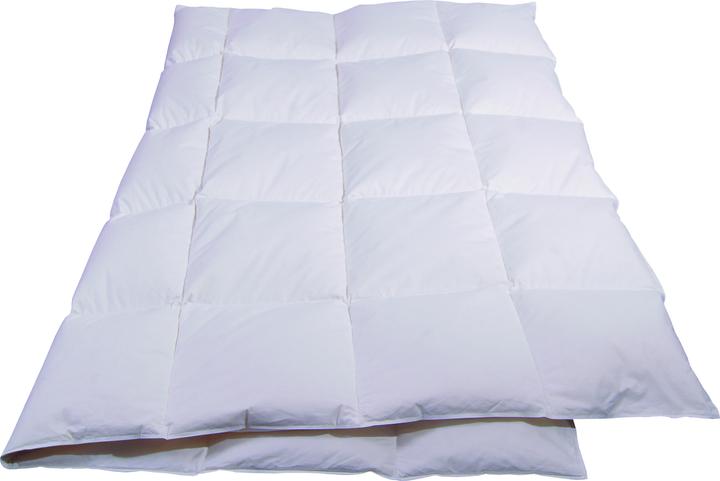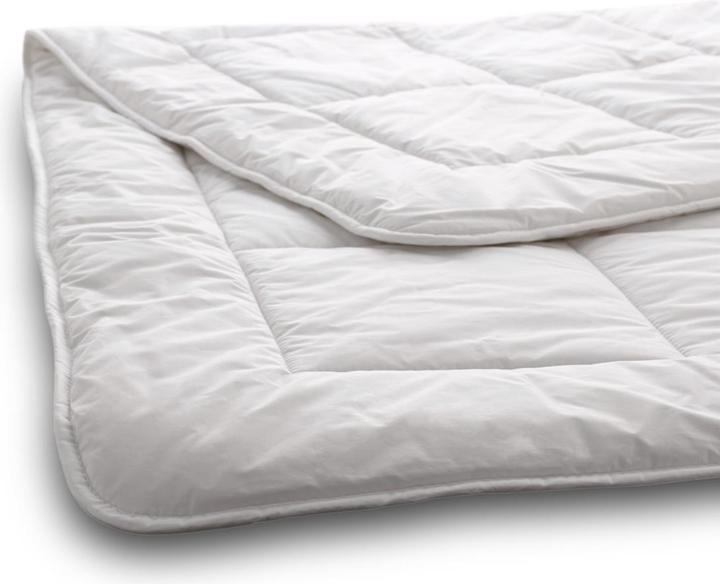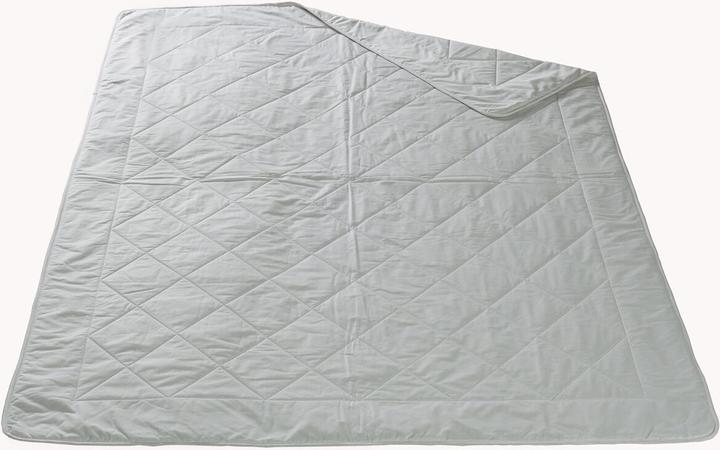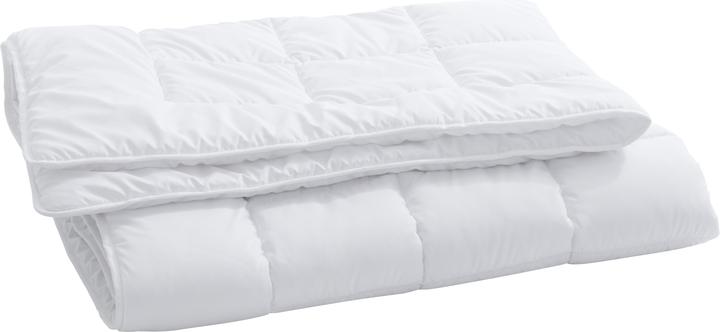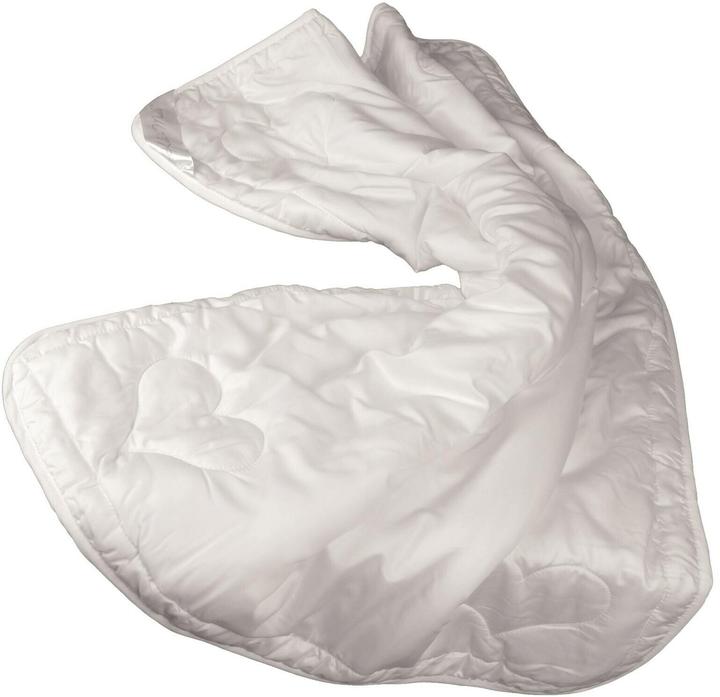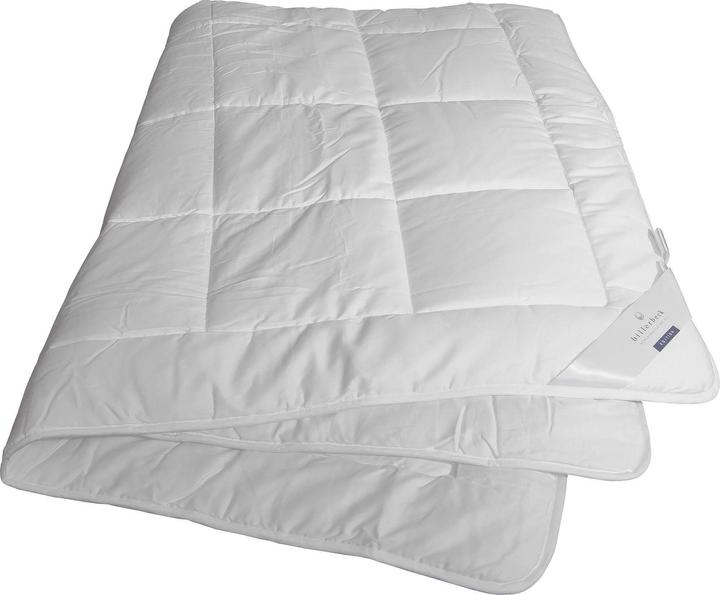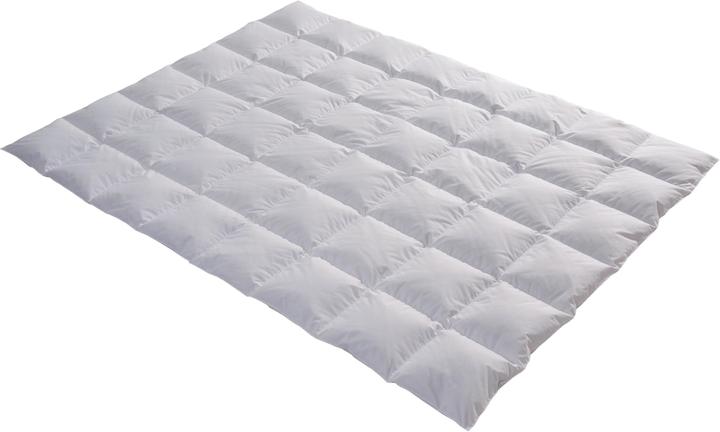

Which duvet is the right model for you?
Duvets are not only available in down, but also in politically correct materials such as natural fibres or synthetics. I'll tell you how to find the right model.
When I left home, I had my old duvet in my luggage as well as my clothes. Up until then, I hadn't really thought about what makes a good duvet. Until I moved in with my first boyfriend and swapped my old duvet for his. I noticed that I suddenly woke up every morning bathed in sweat - without having had a bad dream. Until a friend gave me the tip to check the contents of the duvet. This was invaluable advice, because not every duvet is made for you. One of the decisive factors is your personal need for warmth. I'll tell you how to find the right duvet for you and what alternatives there are to down.
Down
Down duvets are not only lighter than other duvets, they are also the warmest. The air chambers ensure a constant balance between cold and warm air. This prevents you from sweating. In addition, down balances out moisture by releasing it into the outside air. Look for a high down content when buying. The higher the proportion, the more breathable, higher quality and lighter the duvet is. Another advantage of down is that it is particularly elastic and always returns to its original shape. This is the case when you shake out your duvet. You can also wash this duvet model yourself. However, because the reputation of down is controversial, more and more people are turning to duvets made from natural fibres.
Pro: particularly warm / Contra: production
Here you can find all duvets made from down
Natural fibres
Natural fibres such as shearling or cotton act like a self-regulating air conditioning system that warms or cools as required. In hot weather, the materials release moisture from the body into the environment. Cashmere, for example, is constant in temperature and is known for absorbing moisture without feeling wet. Camel hair is unrivalled when it comes to temperature equalisation. The only downside is that duvets made from natural hair must be dry-cleaned. There, the natural hair is professionally washed and re-greased, which contributes to a long service life.
Pro: optimal sleeping climate / Contra: not easy to clean
Hier geht's zu allen Duvets aus Naturfasern
Synthetic
High-quality functional fibres are now capable of imitating the properties of down. As these models are easy to wash - even boil wash in some cases - bacteria and dust mites hardly stand a chance. This makes the duvets hygienic and particularly appealing to allergy sufferers. However, this only applies if you wash them regularly. Bamboo fibres are suitable for allergy sufferers as they have a cooling and anti-allergenic effect. Bamboo (and corn) may sound like natural fibres, but strictly speaking they are synthetic, as fibres are made from the natural product itself, in this case bamboo, in a chemical process.
Pro: easy to care for / Contra: don't keep you quite as warm
Here you can find all synthetic duvets and see all duvets for allergy sufferers here
More tips and tricks:
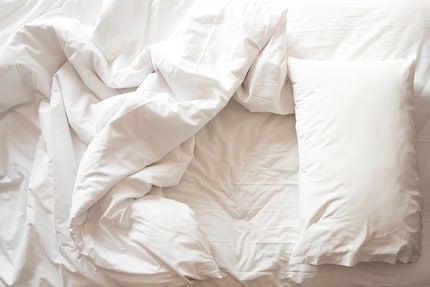
- You can tell whether a duvet is qualitatively good by whether it can be (de)compressed well. You can test this by compressing the duvet and checking whether it then falls back into its original shape.
- Heat points divide the blankets into different heat categories. The higher the level, the warmer the duvet. A normal sleeper who is not particularly cold or sweats a lot needs level 3. In summer, level 1 and 2 duvets are sufficient. If, on the other hand, you're a cold sleeper, choose level 4.
- If you often freeze, I recommend a double duvet, which consists of two duvets. You join them together with press studs. In summer, separate them and use one half of the duvet
- For summer, duvets made from cooling materials such as silk or bamboo fibres are suitable. For winter, those made from down or cashmere.
- Washable duvets are not only of better quality, but also more hygienic. If you wash them once a year, you're doing everything right.
- Shake and air out your duvets whenever you have time. This should remove the moisture. It's best to do this every time you wash your sheets. However, make sure that you do not place the duvet in direct sunlight, as this will remove moisture from the bed contents and cause them to dry out.
- The lighter the duvet, the better the sleep. An additional blanket load has a negative effect on your sleep.
- Those who follow a vegan diet often want to be consistent. The trend is towards vegan duvets. You can find out more here.
Follow my buying guides by clicking on the button at my author profile.
When I’m not exploring the depths of the sea as an open water diver, I enjoy plunging into the world of fashion. On the streets of Paris, Milan and New York is where I keep my eyes peeled for the latest trends. And I’ll show you how to take them from the catwalk to your everyday life.
Practical solutions for everyday problems with technology, household hacks and much more.
Show all